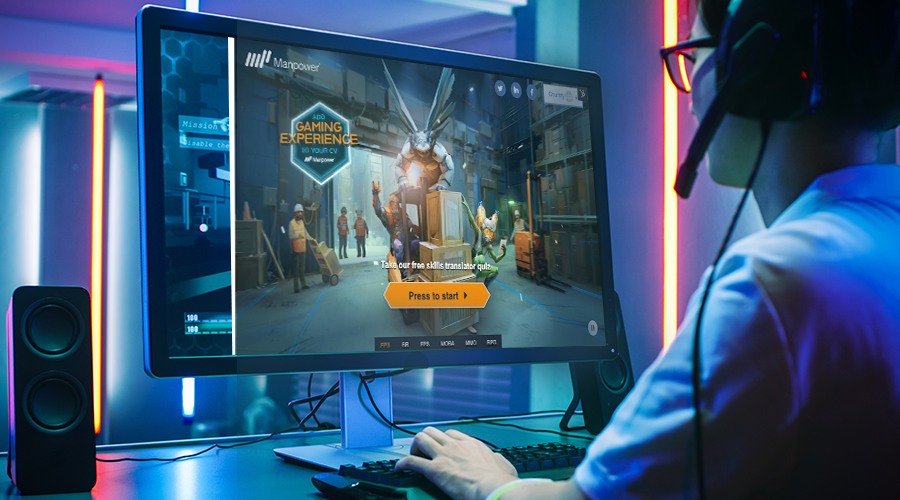If you could ask a candidate one question in your next Microsoft Teams interview, what would you ask? Here’s one to think about: Do you play video or computer games?
You can learn a lot about someone by talking about gaming because people often inhabit the places and cultures depicted within games, much like they would at work. And their favorite games may be a good indicator about which of their soft skills will translate from a screen to IRL.
Globally, one in three people are gamers. But lately, people have been flocking to highly detailed simulated environments in even greater numbers, as the COVID-19 pandemic has left many sheltering in place and yearning for company, albeit online. When inhabiting these domains, landscapes and dusty divots, you learn how they work and see what happens when you make different choices and take different actions. You trace paths, avoid delays, collaborate, construct, learn and solve problems. It’s not the graphics that make video games real; it’s how they mirror our real-world decision making.
Action-based gamers, for instance, tend to be interested in mastering skills, collaborating and competing as a team, whereas those who play strategy, puzzle and quiz games like StarCraft, Civilization, Pac-Man, Words with Friends or League of Legends may have honed their decision-making, planning, concentration and persistence skills. And video games like Mario Bros. provide incredible learning environments because failure is so easy. Did you fall into the very first lava pit? That’s okay. Players learn to dust off the lava and get back out there. They practice improved anticipation, rehearse better movement and—finally—advance more confidently. The ability to confront failure is a skill that’s invaluable for anyone who needs to make decisions in an endless range of different scenarios.
Games have defined narratives—a start and an end point. Whether you’re saving the world or defeating ghosts, you have to review and assess your progress and be ready to course correct. You get rewarded for your solutions and for saving and leading others. Best of all, you get to explore the outer edges. As you practice cognitive thinking, you learn to think as an entrepreneur whose survival depends on adapting to change.
Furthermore, you can adjust for difficulty based on performance, and as learning expands, the play gets harder, requiring more agile thinking and adaptation.
When you play video games, you are learning how to learn—and learnability is one of the strongest predictors of job success. You also learn how to collaborate, as games are complex social systems where you engage in constructive learning together with your teammates.
Cognitive skills are critical, and as games become increasingly social, they’re nurturing the need for foresight to be able to predict danger and success. The plot is often predicated on collaboration, with every player bringing their unique skills into the fold. You earn rewards only as teams.
Of course, gaming is by no means a universal universe with a herd of one-trick ponies. Different video games require different skills. Some require more social perceptiveness. Others require more logical thinking. The questions recruiters might ask themselves are: What skills am I looking for? And where might this candidate have been practicing these skills online? How close are these skills adjacencies to the ones required on the job? Should I hire a Fortnite player with sharp collaboration skills or a Words with Friends Player who’s more practiced in problem-solving?
The skills gamers acquire on their remote planet or paradise island migrate across worlds, from the game to the workplace, where critical thinking, risk-taking and open collaboration are rewarded.
In their downtime, tomorrow’s workforce might just be helping themselves make it to the next level in their career. To learn more, download our Game To Work report.

